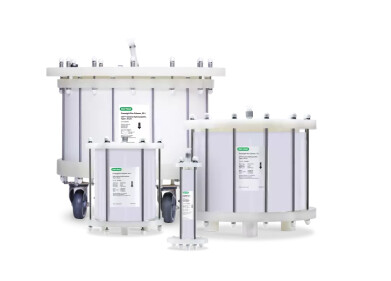Columns
High-Performance Syringe Filters Extend Lives of Analytic Instruments and Columns
Nov 30 2021
High-volume laboratories must keep analytic HPLC and UHPLC instruments running reliably while producing quality data. Filtering samples before injection into a chromatography instrument is one of the primary ways that an analyst can protect their column and instrument from unnecessary wear and excess downtime. Filtration of both the sample and mobile phase prior to analysis helps increase the lifespan of chromatography columns, reduces overall instrument wear, and removes any particles that may interfere with the chromatogram.
Of the four common causes for HPLC column failure – plugging, voids, absorbed sample, and chemical attack – plugging is the most frequently encountered. Injection of samples containing particulates will eventually block the column inlet and column packing, cause high column back pressure, and reduced column lifetime.
Filtration Extends HPLC Column Life
Accurate, reproducible data depends on proper HPLC column performance. Column blockages can be prevented by filtering the mobile phase through a 0.2 μm or 0.45 μm membrane disc or syringe filter and utilizing inline filtration within the instrument. In addition, particulate removal also protects the pump, injector, and other components from premature wear.
In a recent study, high-performance syringe filtration was found to prevent chromatography column blockages and extend column life without contributing extractable materials. The test injected unfiltered and filtered 0.05% latex sphere suspensions into an HPLC column. With unfiltered samples, the column failed due to plugging after 19 injections. Samples passed through non-Pall syringe filters plugged the columns after 500 injections. With Pall Acrodisc® One filters, no increase in backpressure was observed after 1000 sample injections. (See figure 1).
Syringe Filters Dramatically Improve UHPLC Column Life
Syringe filtration was found to have an even greater benefit on UHPLC column life. Injection of the unfiltered and the 0.45 μm filtered suspensions resulted in a rapid and significant increase in the backpressure of the Acquityu UPLC column after 9 and 16 injections, respectively. By contrast, column plugging was not observed even after 1,000 injections of the effluents from the Acrodisc MS syringe filter. The result: the columns lasted 111 times longer than if the sample was not filtered.
Consider Long-Term Savings versus Initial Cost
As one assesses the costs of a syringe filter, guard column, and chromatography column, it is evident that the costs rise for each component exponentially. Yet, the syringe filter’s long-term impact on instrument/column performance and longevity far outweighs its initial price. Changing syringe filters and guard columns in the middle of runs at a high-throughput analytical lab can be a time-consuming and revenue-losing proposition.
Using a higher performing syringe filter, one that meets its claims for particulate and extractable retention, will provide long-term benefits for the instrument. It will run longer, more consistently, and with less downtime.
For more information, visit Analytical Sample Prep.
Download the scientific brief, How High-Performance Syringe Filters Extend the Lives of Analytic Instruments and Columns.
Digital Edition
Lab Asia 32.2 April
April 2025
Chromatography Articles - Effects of small deviations in flow rate on GPC/SEC results Mass Spectrometry & Spectroscopy Articles - Waiting for the present to catch up to the future: A bette...
View all digital editions
Events
Apr 09 2025 Tokyo, Japan
Apr 22 2025 Hammamet, Tunisia
Apr 22 2025 Kintex, South Korea
Analytica Anacon India & IndiaLabExpo
Apr 23 2025 Mumbai, India
Apr 23 2025 Moscow, Russia
























